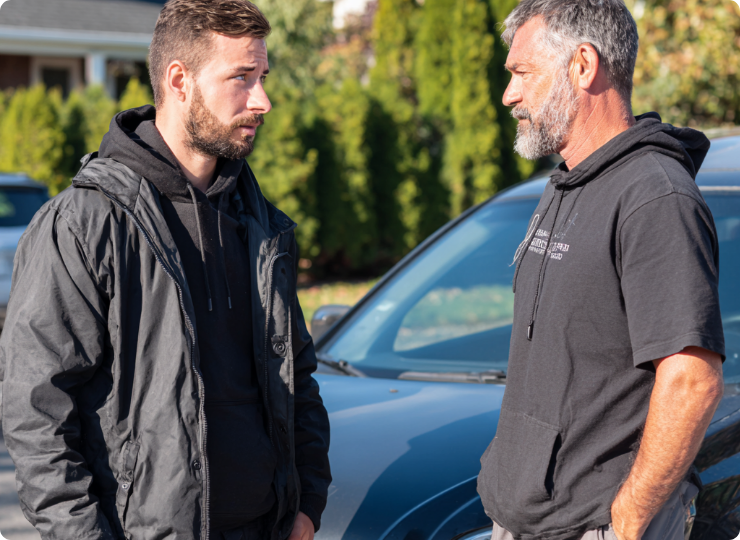Intervention - Here's What to Expect
- Michael McEvoy
- Jul 13, 2025
- 3 min read
Updated: Sep 13, 2025

What Happens During an Addiction Intervention?
When a loved one struggles with substance use, the path forward can feel uncertain. Staging an addiction intervention is a powerful act of love. It’s a moment rooted in honesty, compassion, and the hope of lasting change. At its best, an intervention becomes a safe passage, a bridge to healing, connection, and recovery. This addiction intervention guide for families creates clarity where there was confusion, and connection where there was distance.
Intervention Is a Process, Not an Event
An effective intervention is rarely just one conversation. It’s a guided process of reflection, intention, and steady progress. Each step—each moment of courage—moves your family closer to stability, hope, and lasting change.
1. Starting with a Warm Conversation

Talking to a loved one about addiction takes courage. These conversations require compassion, honesty, and steadiness. At RiseWell Recovery, we honor the strength it takes to speak with love. For more guidance, visit our post: How to Talk to a Loved One About Their Addiction. If your loved one resists help, it may be time to consider a professional. Many families seek professional intervention services near them to ensure the process is structured and supported.
2. Co-Creating a Thoughtful Plan

Together, the interventionist, family members, and—when appropriate—the individual in need of help, explore available treatment options. These may include detox, residential or outpatient programs, therapy, medication support, or peer-based recovery groups. We help families weigh practical considerations such as cost, insurance, and location. The result is a clear, personalized plan focused on what gives your loved one the best chance to heal.
3. Building Your Support Network

Families often arrive here after years of worry, isolation, and exhaustion. The intervention process creates an opportunity to shift unhealthy patterns and build new ones grounded in trust, respect, and resilience. Loved ones are encouraged to become part of a sober support network, offering support, encouragement, accountability, and steady presence.
4. Delivering the Intervention

There’s no single script for what happens during an addiction intervention. Some are brief, others unfold over several conversations. They may occur in person or virtually. The goal is always to offer a structured, compassionate invitation to accept help. A trained interventionist keeps the process focused, safe, and purpose-driven. If you’re wondering when to stage an intervention, act as soon as there’s concern.
5. Engaging in Treatment

Before the intervention takes place, treatment logistics are often arranged in advance. This may include sober transportation to detox or a residential program. With sober transportation, your loved one can safely travel to treatment without delay. Whether attending a rehab in Connecticut or an out-of-state facility, a sober companion can provide support along the way, offering safety, structure, and encouragement during this critical transition.
6. Connecting to Aftercare

A 28-day residential stay may begin the journey, but healing continues long after discharge. By week two of inpatient treatment, our team helps families and providers plan for aftercare. There are many pathways to recovery, and this may include recovery coaching, sober companionship, therapy, drug testing, housing support, and community-based programs. Aftercare planning is essential for maintaining momentum and creating a strong foundation for long-term recovery.
7. Supporting Long-Term Recovery

The return home is one of the most sensitive stages in the recovery process. Family roles evolve, trust is rebuilt, and new routines take shape. A sober companion can support this transition, helping to reduce risk and strengthen resilience. Ongoing support—through coaching, check-ins, and accountability—helps your loved one stay grounded while navigating everyday life. We walk beside you through every stage of the journey.
Why Work With a Professional Interventionist?
A skilled interventionist brings neutrality, experience, and structure to what is often an emotional and uncertain time. They help keep conversations focused and compassionate, making space for healing on both sides. Interventions aren’t confrontational. They’re collaborative and intentional—an opportunity to begin again with clarity and care.
You Are Not Alone
If someone you love is struggling, RiseWell Recovery is here to walk beside you. We provide compassionate intervention services, recovery coaching, sober companions, and sober transportation across Western Connecticut and beyond. Whether you’re preparing for your first conversation or navigating life after treatment, safe passage begins with one brave decision. Connect with a coach today, we’re with you every step of the way.



